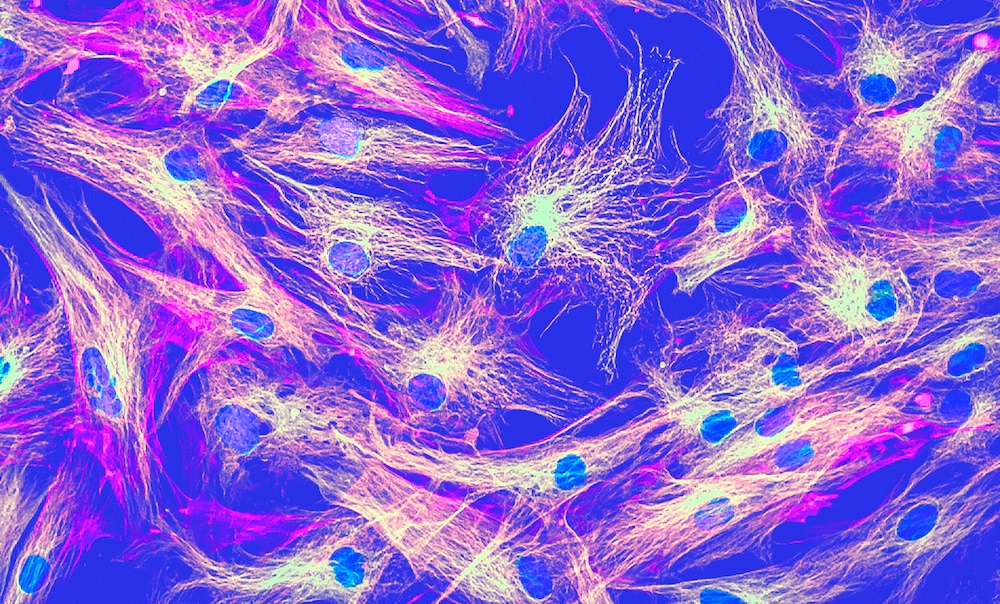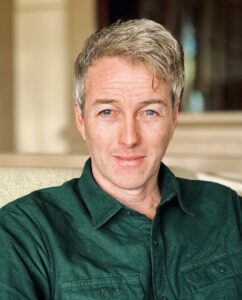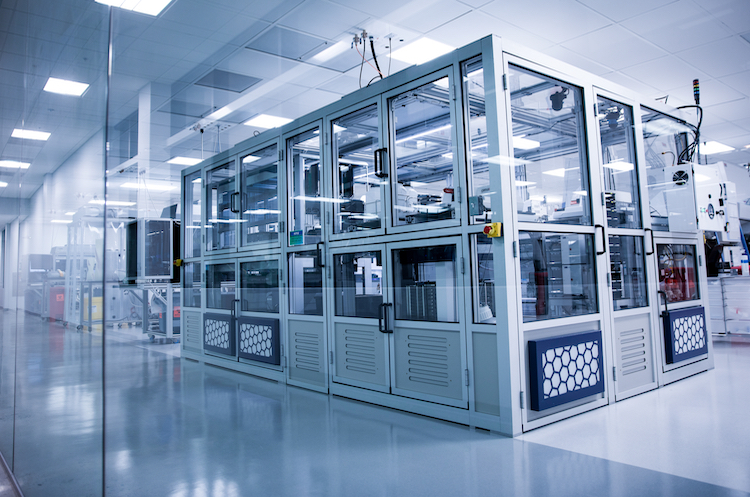For many people interested in genome engineering, the era “before CRISPR” has faded into the deepest recesses of the mind, like a lost period of antiquity, even though it only entered the biotech toolbox a dozen years ago.
Two main markets quickly formed around the cleverly adapted prokaryotic antiviral defense system: those producing CRISPR therapeutics and those utilizing CRISPR products for scientific research. Many companies that have embraced CRISPR have had to decide between creating products for research use only (RUO) or clinical use, although a few have attempted to do both.
Based in Silicon Valley, Synthego was one such company, providing medicinal-quality guide RNAs for clinical applications and CRISPR-edited cells as research tools simultaneously. But those roads have diverged too much. Today, according to an exclusive briefing with GEN Edge, Synthego announced that it will focus on providing high-quality sgRNAs across the continuum of CRISPR therapeutic development while spinning off a new company.
Synthego has divested its Eclipse cell engineering platform into a spin-out company, EditCo Bio, which is positioned to deliver edited cells and highly optimized guide RNA designs for customer needs across both basic research and preclinical phases of CRISPR-based therapy. Synthego COO John Tan will take the helm at EditCo as CEO and will be joined by Synthego CTO Travis Maures, PhD, who will be EditCo’s CSO. EditCo will operate as an independent business with financing and support from the life sciences investment firm Telegraph Hill Partners.
As part of the decision to split, co-founder Paul Dabrowski, who grew Synthego to a 250+ employee company and brought its platform applications to more than 45 countries, will step down as CEO, effective immediately, but will continue his role as a Board Director and advisor. Craig Christianson, who is leaving his position as an executive advisor at Water Street Healthcare Partners and has a track record of leading global commercial strategies, business development, and operations to build global life sciences and other businesses, will take over for Dabrowski.

“Key to our success is addressing the process development and manufacturing challenges within current cell and gene therapy workflows, continuing to allocate resources and capital to product innovation, and supporting our customers’ progress through CRISPR-based therapeutic development.”
The space between
When CRISPR debuted in pharma, Maures was at BioMarin Pharmaceutical working in the rare disease space. He was trudging through the issue of how to screen for targets and drugs without being able to model the genetic diversity of these indications.
“Thousands of different mutations could define a rare disease,” Maures told GEN Edge. “What was going through my mind at that time was using CRISPR to create all that genetic diversity in the same experiment.”
Maures began to wonder how researchers could reliably return to an original well of engineered cells to run duplicable experiments months apart.
“In graduate school, I would go into a liquid nitrogen dewar, pop out the cryo-box, and look at the [cell vial] map,” said Maures. “There were some [vials] from five years that said, ‘passage 5’ and then there’s another that said, ‘passage 20.’ All those vials are different, and you cannot expect the outcome of those experiments to be the same because the cells are different.”
So, when Maures found himself in front of Dabrowski and his brother and co-founder, Michael, he pitched an engineered approach that provided reproducible engineered cell sources for testing. “It really fit into what they were thinking about—wanting to miniaturize biology and then scale it out,” said Maures.
With that initial idea, Maures joined the Synthego start-up in 2017 as CTO to build out the CRISPR-edited cell workflow with software and robotics, alongside other endeavors to make platforms to make synthetic guide RNAs for a wide range of uses, from RUO and IND-enabling experiments to CRISPR-based therapeutics that meet Good Manufacturing Practice (GMP) standards. Following the creation of what became the Eclipse cell engineering platform, Maures’ role temporarily transitioned to unifying the clinical and RUO aspects of Synthego’s business before ultimately landing him back where he started with the engineered cell workflow.
“A lot of the innovations… were around the reproducibility and efficacy of the experiment, making sure that when we send something out, whether it’s a clone or a pool of cells, that it’s high quality and has as high editing efficiency as possible,” said Maures. “Ultimately, this came back to the same concept of scaling out these just mass amounts of CRISPR reactions and having them be reproducible.”
Maures, however, concluded that the engineered cell platform was limited to predominately immortalized and induced pluripotent stem (iPS) cell lines. While Synthego’s toolkit can optimize any cell type against many variables, Maures said that there is a difference between being able to edit any cell confidently and offering a commercial product—which was not being fully realized at the company.

Go your own way
After a series of meetings between Maures, Tan, the brothers Dabrowski, and other senior executives, the team decided that to realize the potential of Synthego as a business, there was going to need to be a hard split between the work being done for RUO and the clinical space.
The FDA’s approval last December of the first CRISPR-based cell therapy, Casgevy™, encouraged Synthego to decide that its next chapter should be focused solely on advancing life-saving technologies for human health. With a renewed focus on the clinical stages of development, Synthego is positioned to continue growth as a provider of high-quality synthetic guide RNA products for the therapeutic industry and a partner that can support our customers through every phase of the regulatory process, from investigational new drug (IND) submissions through clinical trials and commercialization.
“We are operating in a highly dynamic and fast-growing segment of the industry, and the biggest challenge we have is making sure that we are known globally and that there is a clear understanding of our growing portfolio of products and services,” said Christianson.
“Going forward, we will focus on supplying gRNA, along with new product offerings and consulting services, for customer needs across the cell/gene therapy development process—from RUO discovery through GMP clinical. This focus will allow us to streamline operations and concentrate our resources on innovation, building beyond our position as the leading provider of high-quality sgRNA in the CRISPR industry. We are now better positioned to innovate and invest to provide a more complete solution for our customers.”

As EditCo’s new CSO, Maures tells GEN Edge that while many of the products will remain the same, they have been holding back from releasing new products, notably a T-cell product, to coincide with the unveiling of the spin-off.
Crowded spaces
Many of the logistics involved in splitting up the company are set to go smoothly because of the separation between the different business aspects.
“There is a guide RNA factory for RUO and one for the clinical space—they’re separate—and there’s a separate building that houses our gene editing platform,” said Maures. “Each of them has been built independently.”

“[Telegraph Hill Partners] shared this view that [CRISPR and cell engineering] is like sequencing,” said Maures. “You had people pouring these slab gels and running their own sequencing reactions, which would take days. Then suddenly, you could send out [samples] and get back [sequencing results] in three days. Customers could now do their experiments instead.”
Maures says the situation is analogous to CRISPR and edited cells. “It’s about customers finding value in that endpoint or the outcome and not owning that CRISPR process. Telegraph Hill Partners also saw that and probably believes the market will bifurcate even more.”
Even with the separation, the new Synthego and EditCo will play in crowded spaces—therapeutics and basic biology are brimming with competitors. However, there is only so much energy in a closed system, so focusing it all on one fully realized offering is better than two half-baked ones. By being able to focus only on RUO or clinical-grade products, EditCo and Synthego hope that streamlining operations and concentrating resources on innovation will give them the best shot to provide best-in-class products that will move the needle for their customers as they strive to expand scientific knowledge and provide therapeutic solutions to patients.


